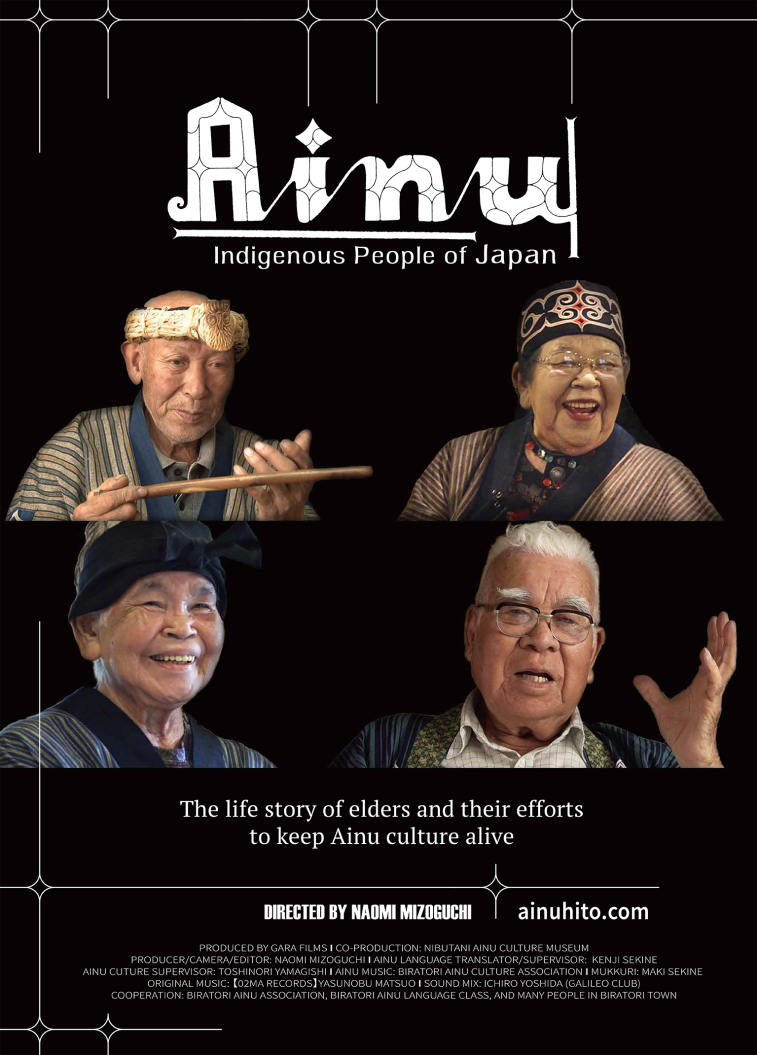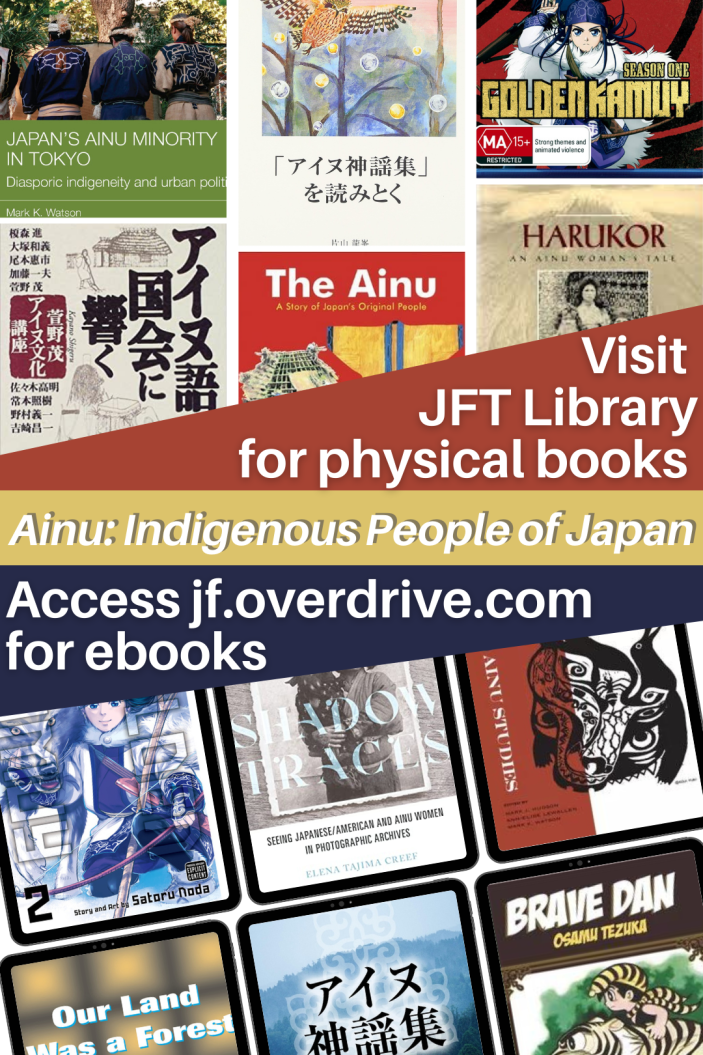Ainu: Indigenous People of Japan (film screening)

- This event has passed.
December 8th, 2022 @ 7:00 pm - 9:00 pm EST
Details » Click here to register »
Ainu: Indigenous People of Japan • アイヌ:ひと
THURSDAY, DECEMBER 8, 7:00 PM (ET) | In-Person at the JFT Event Hall
Doors Open at 6:30 PM
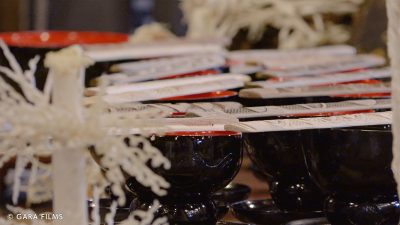

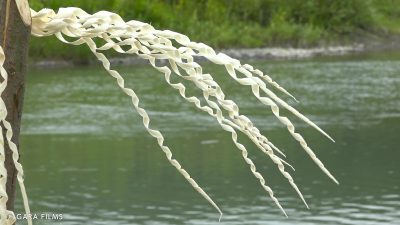
Directed by MIZOGUCHI Naomi • 2019 • Documentary • 80 min.
Presented in Japanese and Ainu with English subtitles • Trailer
In-person Film Screening • Admission Free • RSVP Required (register below)
With Human Rights Day (December 10) upon us, we’re inviting you to join us in-person to revisit Ainu: Indigenous People of Japan for a special extended cut of the award-winning documentary.
Synopsis: Ainu means human in Ainu language. The Ainu are the indigenous people of Japan. Hokkaido, the northern island of Japan, was previously called Ainumosir, or land of the Ainu. Ainu traditions are facing a critical situation; the latest survey revealed that the Ainu population is less than 20,000 people in Hokkaido, and UNESCO has recognized the language as ‘critically endangered.’
Director Naomi MIZOGUCHI depicts the manifold attempts of the Ainu today to regain and pass on their cultural identity. This documentary was filmed in Biratori town in Hokkaido, where many people with Ainu roots still live. It is also known as the hometown of the late Shigeru Kayano, who contributed greatly to the field of research on Ainu culture.
Every attendee will receive a complimentary educational booklet donated by The Foundation for Ainu Culture.
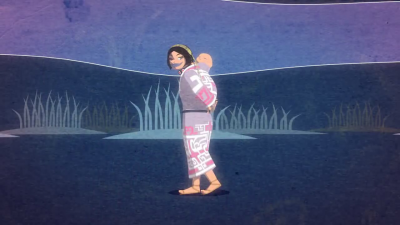
We’re also presenting a beautiful short film titled 60のゆりかご (60 Cradles | 60 no yurikago) before the feature documentary. This animated piece is based on fantastical Ainu lullabies mothers would sing to soothe their crying children.
The short film is generously provided and created by the Upopoy National Ainu Museum in Hokkaido.
Director’s Statement:
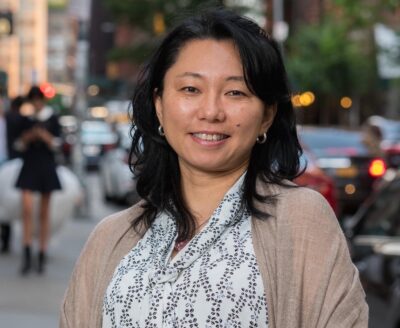 I was born in Hyogo Prefecture on the main island of Honshu in Japan and reached adulthood knowing almost nothing about the Ainu. After collaborating on a film with indigenous people in Colombia, Ecuador, and Nepal, I developed a strong desire to learn about the Ainu who live in my home country.
I was born in Hyogo Prefecture on the main island of Honshu in Japan and reached adulthood knowing almost nothing about the Ainu. After collaborating on a film with indigenous people in Colombia, Ecuador, and Nepal, I developed a strong desire to learn about the Ainu who live in my home country.
In 2008, I visited the town of Biratori for the first time. At the time, I was searching for ways in which indigenous people from around the world could meet and learn from each other through video making. On my fifth visit to Biratori in 2015, a staff member at the local museum mentioned that they wanted to document modern Ainu culture on video. This inspired me to make this film, Ainu – Indigenous People of Japan.
The four elders featured in the film were born before World War II, went through many difficulties, and survived many social changes. Now, even in their 80s, they all are proactive in various local activities and try to pass down Ainu culture to younger generations. I was certain that the stories and activities of these four individuals would become invaluable video material not only of Ainu history but indeed, Japanese history as a whole.
The existence of the Ainu people is virtually unknown not only around the world but also in Japan. My biggest hope is that this documentary will increase the number of people who become interested in the rich, sophisticated culture of the Ainu by learning about their daily lives and the history of the four people featured in the film.
In Collaboration with the Nibutani Ainu Culture Museum:
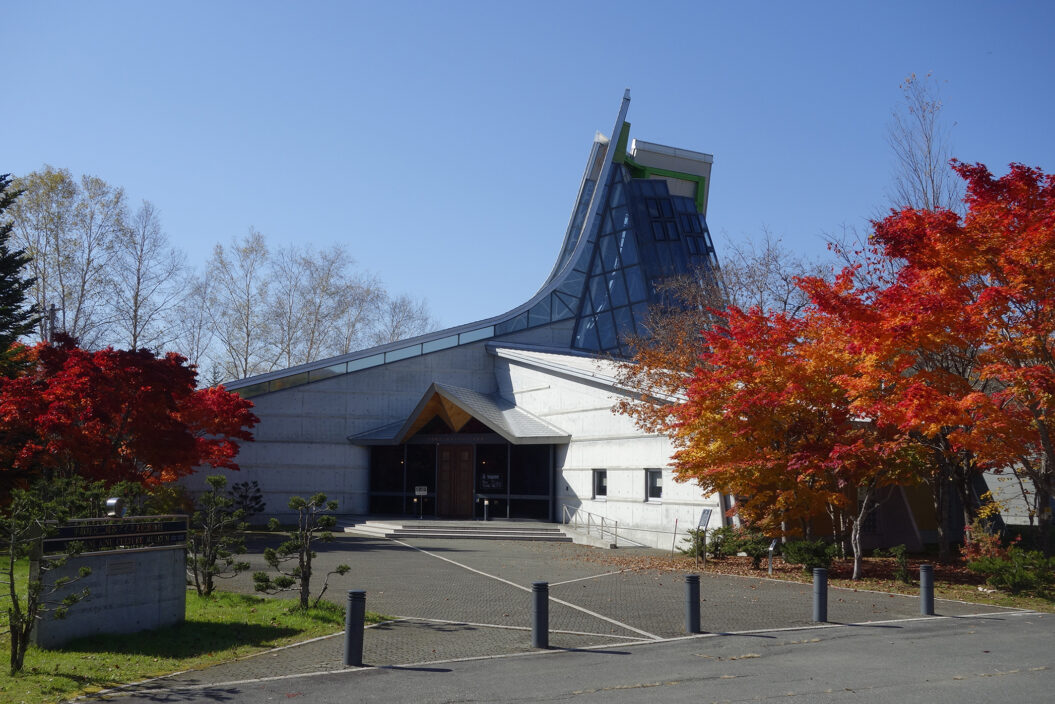 The Nibutani Ainu Culture Museum opened in 1992 with the mission of accurately passing down Ainu culture and its history to future generations. The Museum houses more than 1,000 National Important Tangible Folk Cultural Properties as well as other various traditional crafts. It also has a large collection of video materials, including yukar, or heroic epic poems. The Nibutani neighborhood that is home to the Museum is also host to the Shigeru Kayano Ainu Culture Museum and the Historical Museum of the Saru River. It is renowned as a rare place where there is an abundance of Ainu cultural study materials.
The Nibutani Ainu Culture Museum opened in 1992 with the mission of accurately passing down Ainu culture and its history to future generations. The Museum houses more than 1,000 National Important Tangible Folk Cultural Properties as well as other various traditional crafts. It also has a large collection of video materials, including yukar, or heroic epic poems. The Nibutani neighborhood that is home to the Museum is also host to the Shigeru Kayano Ainu Culture Museum and the Historical Museum of the Saru River. It is renowned as a rare place where there is an abundance of Ainu cultural study materials.
Related Programming:
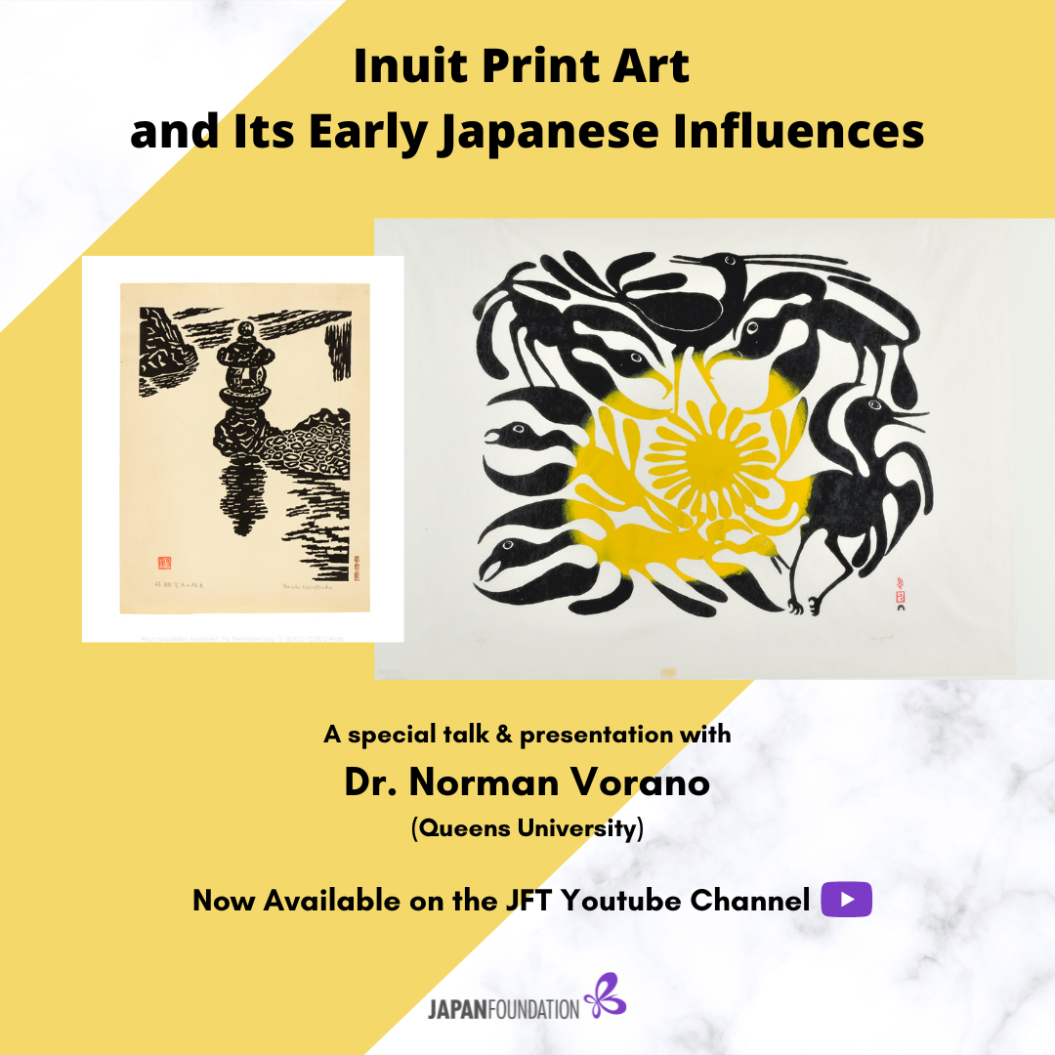 Inuit Print Art and its Early Japanese Influences
Inuit Print Art and its Early Japanese Influences
In the mid-20th century, a series of fortunate events led to the introduction of Japanese printmaking techniques to the Inuit community of Cape Dorset. In this talk with Dr. Norman Vorano, we will hear the story of how these ancient traditions of Japan made their way to the remote Canadian arctic, how Inuit artists built upon these traditions, and the ways in which Inuit printmaking continues to thrive today.
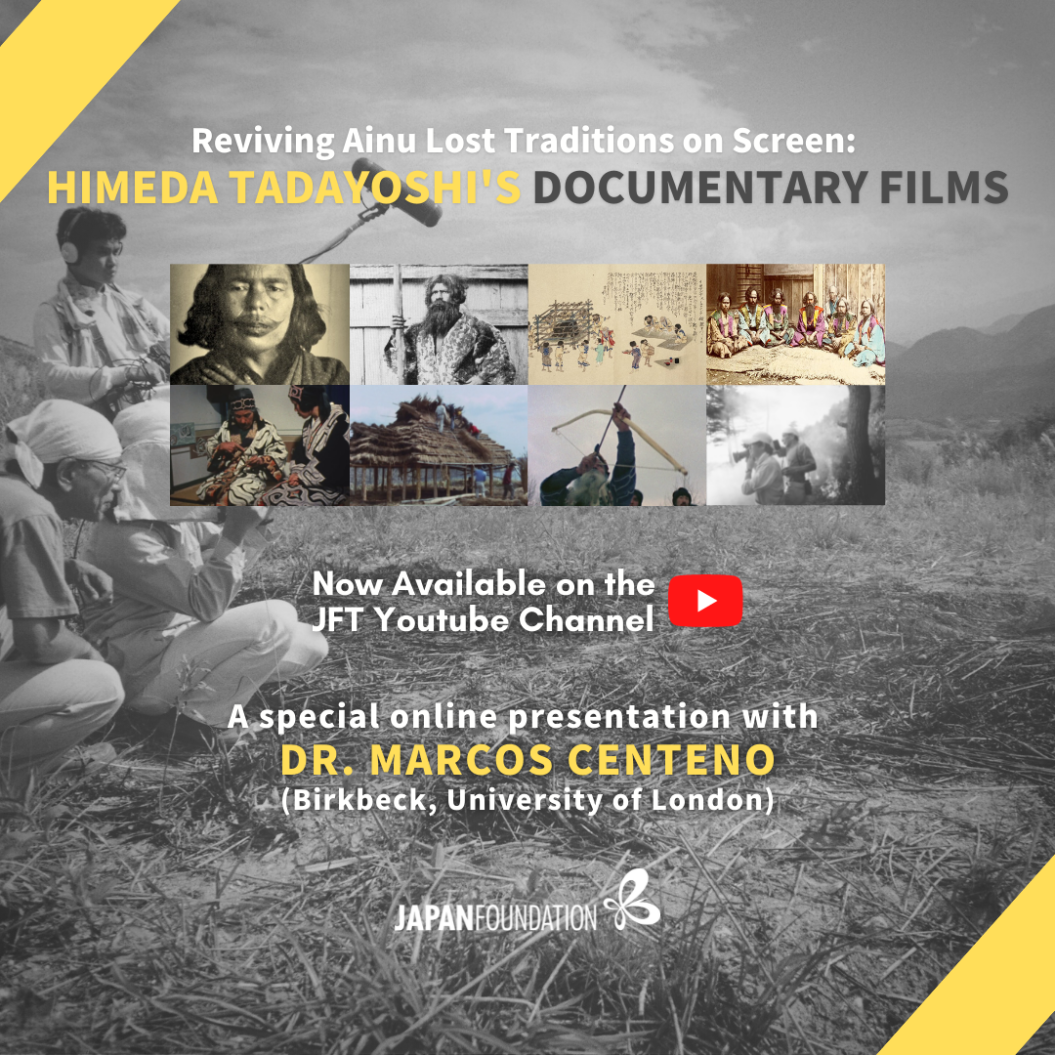 Reviving Ainu Lost Traditions on Screen: HIMEDA Tadayoshi’s Documentary Films
Reviving Ainu Lost Traditions on Screen: HIMEDA Tadayoshi’s Documentary Films
Join Dr. Marcos Centeno for a special presentation examining the historic and cultural significance of HIMEDA Tadayoshi’s documentary films about the Ainu people. Dr. Centeno will introduce us to the history of Ainu representation on screen, which goes back as far as the inception of cinema. Unlike previous documentaries featuring the Ainu, the films Director Himeda made in the 1970s alongside Ainu leader and trailblazer KAYANO Shigeru showcase a new ethnographic approach where the Ainu are not depicted as exotic nor primitive.
Learn More about Indigenous Peoples of Japan with JFT Library’s Books & More
Deepen your understanding about the Ainu people and their culture and history by checking out JFT library’s books, audiovisual materials and/or ebooks on indigenous peoples of Japan before or after the film screening!
Apply for a new library card or renew your expired card here.
Stop by our library in-person on Tuesdays, Thursdays, and select Saturdays.

